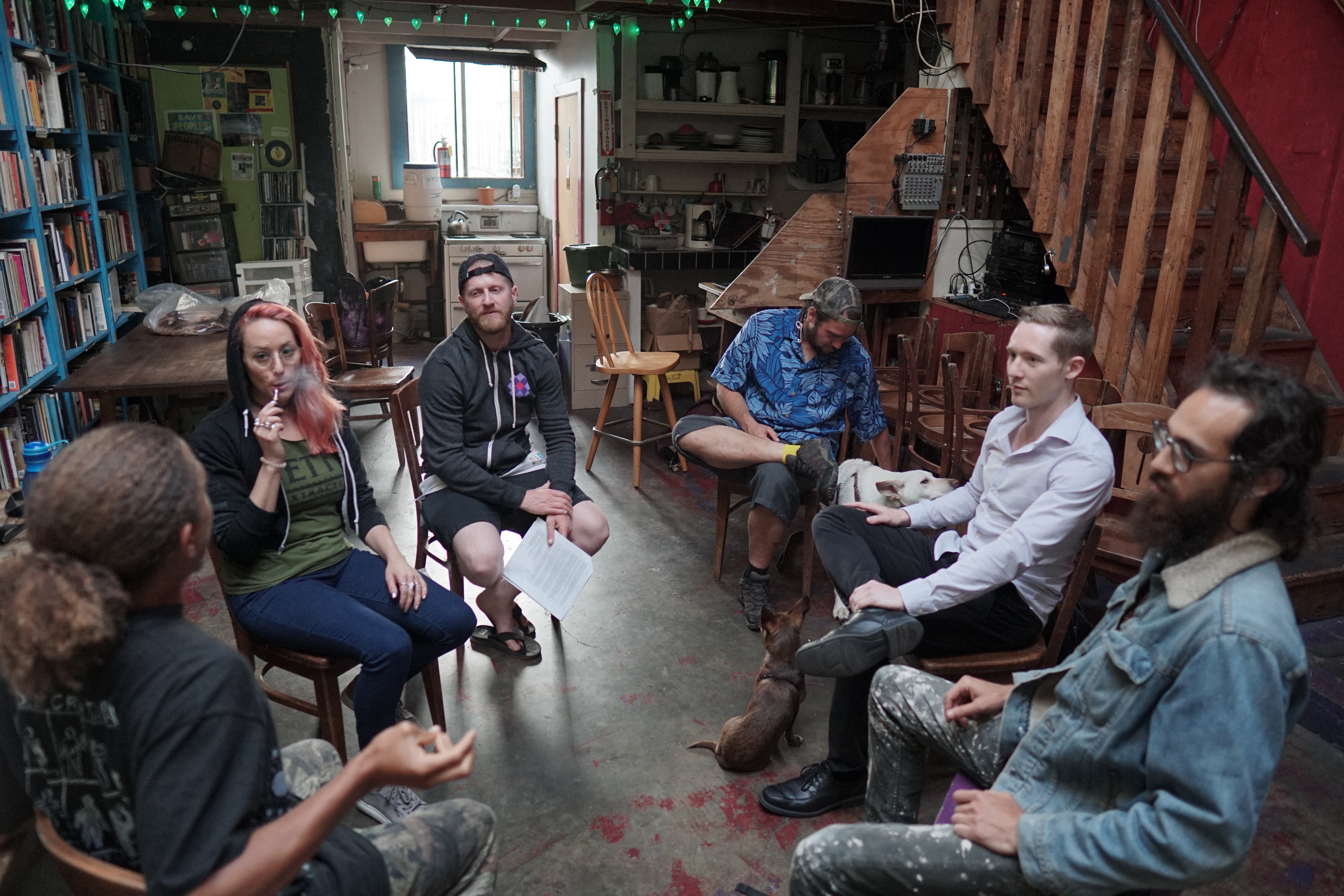Psychedelic activists in Berkeley, California are advocating for their City Council to decriminalize use and possession of naturally-occurring psychedelics. If they are successful, Berkeley will remove criminal penalties related to psilocybin mushrooms, ayahuasca, iboga and psychedelic cacti.
By doing so, the city would follow in the footsteps of its neighbor Oakland, which decriminalized these psychedelics in June. Denver, Colorado decriminalized psilocybin mushrooms in May, and a wave of city-level decriminalization efforts is happening around the country.
Alexander Williams, who is directing the Berkeley campaign, spoke to Filter about how he helped organize this effort, having gained experience on other campaigns. “I have been pursuing decriminalization since 2016 throughout California and Portland, before coming back here to Berkeley,” he said. Earlier this year he joined up with the activists behind Decriminalize Nature Oakland (DNO), just before the first Oakland City Council vote on that resolution.
“We want to put in place in Berkeley the community structures after decriminalization to ensure there is access to these plants for everyone,” Williams said. “We don’t want there to be any economic barriers to people working with and healing from these plants. That also means no commodification. We want these plants to be treated as sacred, and to do all we can to heal our collective relationship with them.”
Accordingly, he and his fellow activists in the Berkeley Entheogenic Society started producing regular educational events in the city around psychedelics, and are also developing an indigenous peoples’ association.
Williams credits the progress in Berkeley—and in Oakland—in part to support from Susana Eager Valadez. Valadez is a 2019 Nobel Peace Prize nominee for her work protecting the indigenous Huichol people of Mexico. The Huichol use the psychedelic peyote cactus as a spiritual practice.
“I think it gets overlooked by the press, but having a Nobel Peace Prize nominee speak in support of these reforms has been very significant,” Williams said.
Earlier this year, Williams contacted a Berkeley City Council member to gauge their interest in psychedelic decriminalization. “I asked if they wanted to support it,” he recounted, “and they said, ‘Well, let’s see what happens in Oakland.’” After that resolution passed, the Berkeley lawmakers were intrigued. “That same night, another Council member contacted DNO for their resolution. Two weeks later, we sat down for our first meeting.”
The language of the proposed Berkeley decriminalization resolution is familiar. “We basically copy-and-pasted the Oakland resolution, then redacted and edited it for Berkeley,” Williams said. It would prohibit the city from spending funds or resources on police and courts enforcing criminal penalties against naturally-occurring psychedelics. It would maintain the prohibition on buying and selling these drugs, but allow for personal cultivation.
The resolution has now passed through the City Council’s Public Safety Committee, and will go to the full Council for review. If approved, the Council will send it to the Public Health Commission, which within a month or two would send it back to the eight-member Council and mayor for a full vote.
“We expect by late October or early November, this should pass,” Williams said. He hopes it will do so unanimously, as happened in Oakland.
Williams emphasized the value of advocates speaking and working directly with lawmakers. “Things get done by working with people and making them see you,” he said. “You’re not just telling them what’s wrong and to fix it—rather, ‘Here’s an idea and here’s what we can do.’”
As with many drug policy reform efforts, a public education and information campaign will be key to success in Berkeley, Williams added. “Decriminalization just gives us the permission to get started with building the systems for equitable access. We have to have a strong community focused on teaching people how to use these plants safely.”
In terms of his wider goals, Williams is eager to more forcefully incorporate an environmental and sustainable perspective into the psychedelic movement. In his previous activist work, he successfully lobbied Sonoma County, Calfornia to fund a permaculture program—the first in the state.
“In any society that has worked with mushrooms or ayahuasca, you see ecological sustainability is an intrinsic part of that process,” he said. “Sustainability is about not being immature with our resources or our environment. Nothing I’ve ever experienced can open up a person’s mind like working with these sacred plants.”
Photo of a Berkeley psychedelic activists’ team meeting, courtesy of Alexander Williams.





Show Comments